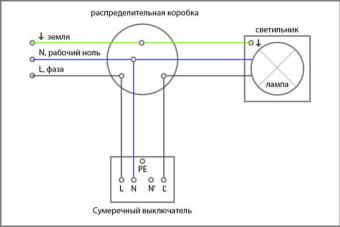Good afternoon Please tell me how to correctly place commas in this sentence: "Do you understand that you are reading for real good book when every couple of minutes you stop(,) just(,) to say: Wow!" Thank you!
Correct punctuation: You know you're reading a really good book when you stop every couple of minutes just to say, "Wow!"
| Question No. 300705 | ||
Hello. Tell me if a dash is needed in the sentence: "You understand that the most important value is you." Thank you
The answer of the reference service of the Russian language
| Question No. 294226 | ||
I thought that I knew quite well how to formulate sentences with direct speech. And yesterday I began to doubt when I saw an unusual offer. Here it is: Instead of: "You don't understand anything!" conciliatory: "Let's figure it out together." Is this sign placement correct? Answer please.
The answer of the reference service of the Russian language
If direct speech is directly included in the author's sentence as its member, then it is enclosed in quotation marks, while punctuation marks are placed according to the terms of the author's sentence. In this case, it's correct: Instead of "You don't understand anything!" conciliatory "Let's figure it out together." You can also put a dash in place of the predicate (before the wordconciliatory).
| Question No. 280025 | ||
Hello.
Please tell me if a comma is used in this case:If you know what I mean!
The answer of the reference service of the Russian language
The comma is needed.
| Question #267793 | ||
Please tell me. Have I placed the commas correctly and is it correct in continuous spelling words "dissatisfied":
Often, having reached your goal, you understand that you are still unsatisfied.
The answer of the reference service of the Russian language
The punctuation is correct. Short participles are written separately from NOT.
| Question #265499 | ||
Is it necessary to put a comma in the following sentence: "You have absolutely no idea what the essence of a harsh techie"? Why?
Thank you in advance.
The answer of the reference service of the Russian language
The semicolon is correct. The subordinate clause is separated by a comma.
| Question No. 246005 | ||
Hello! Thank you very much for your answer to the previous question.Please tell me, in the following sentences, should I put a comma or a dash immediately after direct speech? In the first case, do I need to put a comma to close subordinate clause, which begins with the words of the author, and ends with direct speech? In the second case, is it necessary to put a comma to close the participle? In the third case, is it necessary to put a comma immediately after direct speech before the union “that”? In other words, a comma or a dash?
When Sonya was asked the question: “How old are you?” (,) (-) she always answered the same thing: “However, all mine!”
By proving something: “Well, how can you not understand!” (,) (-) you set the client against you.
If the client answered: "It's too expensive for me" (,) (-) then you ask him the question: "...?"
Thank you.
The answer of the reference service of the Russian language
In the first and second cases, a dash is placed (after the question or exclamation mark that ends direct speech), in the last - a comma.
| Question #242251 | ||
Hello! Kindly, tell me how to correctly arrange the author's words in direct speech in the following cases:
1) - You're so weak ... malipu-y-usenky, - she carefully looked at the puppy; suddenly stinged her eyes, but the girl immediately shook her head.
or
- You're so weak ... malipu-u-usenky.
She looked closely at the puppy; suddenly stinged her eyes, but the girl immediately shook her head.
2) - If dad were with us ... - A tear rolled down the round child's cheek.
or
- If only dad were with us...
A tear rolled down the child's round cheek.
3) - Everything, little one! Understand? - Sveta gently, barely touching the puppy's head, stroked the "little one"
The answer of the reference service of the Russian language
We offer the following option: - What are you like ... - She looked carefully ...
| Question #236851 | ||
Hello. I really hope for an answer.
It seems worth figuring out (,) what's what.
Are you sure you don’t understand (,) what’s what (,) or are you just pretending?
Thank you.
The answer of the reference service of the Russian language
Correctly: It seems to be worth figuring out what's what. Are you sure you don't understand what's what, or are you just pretending?
| Question No. 225001 | ||
Correctly written? You hear the dog barking, and you understand: "The guest has come."
The answer of the reference service of the Russian language
No quotes or capitalization required.
| Question #222691 | ||
What rule can be applied when writing words you understand (b), you know (b), you can (b), etc. to determine if you need soft sign?
The answer of the reference service of the Russian language
In the endings of verbs, after hissing, a soft sign is always written: _you understand, you know, you can_.
| Question No. 222013 | ||
Tell me, please, if the punctuation marks are correct: "old punk rock, a kind of pantry of the moon, raking which you understand a lot and learn a lot." In particular, I'm interested in whether a comma is needed after "which" Thank you
The answer of the reference service of the Russian language
A comma after _which_ is not required.
Understanding (from Wikipedia) is a psychological state, the correct perception or interpretation of an event, phenomenon, fact, accepted in a certain circle. Correct perception or interpretation...
When one person tells another that I understand you, how do you know that understanding is really there? Does he really understand or just agree with what he hears? How can you be sure he has the right perception?
In general, is understanding possible? Is not understanding an illusion when what is desired is given as reality?
Let's look at the barriers to understanding that I think are the main ones.
- Different interpretation based on personal experience;
- Recognition of their interpretations as the most accurate reflection of reality;
- Personal attitude to information;
- A certain unchanging conclusion about a person.
1. Different interpretation based on personal experience.
To understand a person, to understand his words or actions, we usually rely on our own experience. When we claim to understand another, we are likely to assume that our experience resembles that of the person we claim to understand. But these assumptions of ours can lead to serious errors and cause problems in mutual understanding if the experiences differ.
By conveying any thoughts to our interlocutor, we hope for understanding. Let's see what our interlocutor does.
After receiving your thoughts, he begins to compare them with his experience. For example, if you say that sugar is very sweet, the interlocutor will remember his feelings, which he also named as "sweet" and agree with you.
Suppose you have experienced the taste of an orange as sour. And always, when it comes to oranges, you will mean that they are sour. If you say that all oranges are sour, and your interlocutor has experience of the taste of an orange not only sour, but also sweet, then he will not agree with you. And each of you will prove your own, because your experiences were different. And both of you will be right, but each for himself.
When sharing different experiences, it is very difficult to achieve understanding. But the taste of an orange is not the case when a conflict can flare up (although in life it happens that because of such a trifle people stop communicating with each other).
If a woman, for example, has experience of communicating with men who have always cheated, in all conversations about men she will hear only the same thing - a man is cheating. Even if a friend talks about her friend as a wonderful person, a woman will assume that this wonderful man cheating on his girlfriend. All phrases about a man will be perceived with suspicion and with a search for confirmation of his deception.
Another example. Offended by her husband, the wife becomes silent and withdraws into herself, demonstrating discontent. Faced with a similar condition in a husband, based on her experience, the wife may decide that he was offended by something on her. It would never occur to her that a man can be silent because he is simply upset about something, or does not want to upset his loved ones with something, that it does not personally concern them and will settle down by itself, and the wife has nothing to do with it. .
Or a wife may be offended by her husband, because when she feels bad, the husband, instead of supporting her, is eliminated. But a man has his own experience - when he feels bad, then it is easier for him when no one touches him and does not try to support him. And he acts from his experience - he is eliminated, he allows his wife to be alone in order to come to her senses.
In the affected examples, the experience is limited, has only one side, one variant of behavior. But it happens that a person has no definite experience at all for some action, experience, and then words can turn out to be an empty sound, a slogan.
How often do we hear such words: "accept", "let go", "love yourself", "love the world", etc. But how can you accept, let go, love if you don't understand, if you don't have that experience? Words just remain words, slogans remain slogans. This sounds especially funny from the lips of a person who himself does not understand how to do this, that is, he also has no experience.
A person does not understand how to "let go", what should be done, what to feel, how to behave? “I let him go because I don’t hold him, and he does what he wants,” the woman will say. To which a friend may object: "No, you're holding him!" If a friend cannot explain that in her concept "you are holding him", then understanding is unlikely to be achieved. And the word "let go" will remain an empty slogan. And it will also cause irritation.
It may be that the same word for different people will mean different things have been done, because different experiences of life are associated with this word. Or the same experiments, but named with different words. Or, in general, a word may mean nothing if a person has nothing to do with this word. How can we reach mutual understanding in this case? You can talk about the same thing, but not understand each other at all.
In class, I sometimes do this exercise. I ask all members of the group to focus on one chosen word-concept and for three minutes to present this word in pictures. The group then shares their ideas. What a surprise it is when people start sharing their ideas. Sometimes these views are radically different.
Focus on the word "generosity." Close your eyes and occasionally say it to yourself. Imagine this word in pictures. Ask your friend to do the same, and compare your presentation with that of a friend.
With the word "generosity" someone may have a picture where the master gives a fur coat from his shoulder. In this interpretation, a person will perceive the word "generosity" as something negative, degrading to others. Another in this word will see a kind, gray-haired old man, endowing everyone with his smile and love. The third is something else.
"Generosity" is an example, you can choose any other word and compare views.
People can use the same words but have completely different experiences.
For one, a certain word may be very offensive, and the other may not attach any meaning to it, because he did not have such an experience when this word caused offense in him.
There are many examples, I think that you have already remembered none. So one of the main obstacles to understanding will be a different interpretation of words, deeds, concepts, experiences, signals.
2. Recognition of their interpretations as the most accurate reflection of reality.
Just because you listen doesn't mean you hear everything.
Pay attention to how you behave if something in what is said to you does not agree with your ideas, with your beliefs, with your faith, with your view, with your opinion. We begin to block our attention, and we push away information that is objectionable to us.
It turns out that our ability to hear is limited by our opinions, beliefs and beliefs. This means that we are ready to hear only what we already know, which corresponds to what we consider correct.
And how can understanding then arise if some information that comes to us contradicts our attitudes, and we begin to block our attention? We begin to defend our idea, sincerely believing it to be true, without trying to verify or refine it.
If we return again to our example with an orange, then in a dialogue about it, one can see how one person who has experienced an orange as sour will prove that all oranges are sour. And he will not respond to the assurances of the second that oranges are also sweet, ignoring his experience.
All of us: "You don't understand me!" they come from here - we each try to impose our own, sincerely considering this the only true one, ignoring the opinion of the interlocutor. And the interlocutor does the same.
One can give such an example. The girl, having met a young man for a year or two (the period is not important) and faced with a situation of misunderstanding of each other, declares: "I just now realized what you are like!" But is it so? Did she really just realize this now? She simply believed that her young man matched her image, but the reality turned out to be different. And to the question: “Why did you break up?”, The girl will most likely answer: “He is not who he claimed to be!”
Unfortunately, it is impossible to understand a person as long as our beliefs and attitudes let through only the information that corresponds to them. In reality, it turns out that we do not see anything else, and do not want to see anything else.
There is no understanding, and there cannot be, as long as we draw in our head the image of those who are next to us and communicate with this image, and not at all with a person.
And if suddenly a person ceases to correspond to the image, we cannot understand what happened, why he suddenly changed dramatically. Yes, and the desire to understand we often do not arise, immediately given the assessment of "bad".
How many families are collapsing from the fact that initially no one sought to know and understand the person who is nearby - what he likes, what he wants, what he is interested in, whether he accepts our way of life or whether he has a completely different view of the family, other expectations from the family . We sincerely believe that a person close to us fully shares our values, and we are outraged if this turns out not to be the case.
It is also surprising that we develop a fear of understanding another precisely because, having understood, we can be disappointed in him, not having time to enjoy our illusions. We, like blind kittens, poke into a warm sweater, imagining that this is our mother. Yes, how much suffering could have been avoided! After all, if we communicate not with a person, but with our own idea of him, and most importantly, the more we are interested in this person, the higher the probability of our misunderstandings.
Think about how ready you are to accept new thoughts? What do you do about things that don't fit with your structure? Are you trying to understand those people who do not share your point of view? Just be honest, at least don't deceive yourself.
3. Personal attitude to information.
Personal attitude is when personal interests, needs and emotions influence our perception. We begin to hear only what we want to hear and miss important messages that are sent to us from other people.
If we are very pleased to hear something, some words arouse pleasure in us, then we stop our attention on these words and apart from them we no longer hear anything. Focusing, for example, on words of love, we may not catch the message with which they are presented to us.
If something is unpleasant for us, causes pain, resentment, our needs are not satisfied, then our conditioned reactions come to the fore, and we immediately focus on our feelings, on our thoughts, and not on the words of our interlocutor.
“Well, you’re stupid now…”, our interlocutor throws. Everything, the channel of perception of information is closed. All thoughts revolve around the concept of "I was called stupid." “I would look at myself”, “he is stupid”, “how dare he offend me” - and all in the same vein. How can we understand something new if we always react in the old way?
Without trying to understand something, we begin to evaluate "this is bad", "this is good" in relation to us personally. There is no neutral perception of information as information worthy of understanding or rethinking. If this is good for me personally (again, we take information from personal experience), which is good. If it's bad for me personally, then it's generally bad. Well, what's the understanding? "You did me badly and I absolutely do not want to understand what caused your act. You did me badly!" or "I feel so good with you. And why is there something to understand, why I feel good, what you are doing, what makes me feel good. I'd rather enjoy all this."
4. A certain unchanging conclusion about a person.
Have you ever noticed for yourself that we do not just listen to what a person says, but also make certain conclusions about how a person is characterized by what he says?
In the process of communication, we begin to evaluate a person and the possibility of understanding disappears. “What is there to understand him? He is such, such and such. I don’t want to understand this,” or “Yes, everything is clear with him, what is there to understand,” etc.
And this hinders understanding, and then it hinders ... But in general - is it possible, real understanding?
Theoretically yes, but practically...
Real understanding is possible only when you simply listen. When you stop judging, you stop agreeing or disagreeing. Only then can something new enter you.
It is often said that in order to understand another, you need to take his position. This is difficult to do if, taking his position, you will understand from your experience, from your reality, from your personal attitude to information and from a certain conclusion about a person. In this case, understanding will not happen. It is necessary not only to stop listening to yourself, your experience, but to enter into the experiences of a person, to feel the way he feels, to hear his thoughts that create his experience. It is clear that this is not easy, and even energy-consuming. "There are a lot of things to do, and then to spend your time, your energy to understand something" ...
Taking the position of an interlocutor is a way, but not a goal. Therefore, you will never have the time and energy to understand another if you do not have a goal. And when you don't have a goal of interaction, then you won't be able to understand anything new. So what is your purpose of interaction?
If you communicate with someone and say: "Yes, I understand everything," you are simply confirming what you already agree with. You didn't learn anything new. You only confirmed what you already knew. And at the same time you will say that it is very good man and you learned a lot from talking to him. But was there any understanding? Was there any desire to understand anything at all?
If something is incomprehensible to us, not familiar, if what the interlocutor says does not agree with our knowledge, then we do not seek to understand, but immediately begin to defend our knowledge. The person is not interested in getting anything new. He is only interested in confirming what he already knows.
So the world is divided into "good" and "bad". The good ones are those who share our knowledge, our ideas, our beliefs, our points of view. And the bad ones - who do not share them.
So what are we looking for? Understanding or agreement?
What is the purpose of your interaction?
When a person does not understand himself, it is difficult for him to understand other people and the world around him, it is difficult to establish harmonious relations with himself and with the environment ... how to understand myself if I don't understand anything question for discussion...
I do not understand anything
Letter to the site of psychological help: " I do not understand anything, what to do?"
Everything is getting out of control, my life is starting to turn into gray days with a headache and thoughts of a psycho. hospital.
Every morning I wake up and understand that I don’t want to go anywhere, I leave the house late and therefore I’m late, then in the minibus I start to blow my mind about the correctness of my life, about whether I’m normal? I have been living for three months now and I can change my mood a hundred times a day, basically I get out of a state of fatigue by saying that I can do everything, I can do everything, then I understand that I am not mistaken?
I often have a headache, again I don’t want anything, there is a young man, I don’t know how to behave with him, what I want from a relationship I don't understand, I'm with him, because it's calmly good with him and he loves me. I don’t know what I want, I didn’t go on vacation for a year, what is rest, fatigue, why is this necessary without a clue. Sometimes I built myself a world of ideals, I don't understand anything in life and I drive myself into depression, then I pull myself out again. I look at others, I compare, I watch how everyone saves, I don’t understand why, I watch how all women take money from guys, I don’t know if it’s right or not, I look into the future, I’m afraid, I often worry. And I understand absolutely nothing. I don't understand myself.
How to understand yourself
The psychologist's answer to the question: How to understand yourselfTo understand oneself and realize everything that happens in the head, in the human psyche, personality analysis, psychodiagnostic research and testing, and psychotherapeutic dialogue (available online) are necessary.
If you have a desire, then I can help you - contact an online psychotherapist Oleg Matveev
Free, preliminary consultation with a psychologist via Email, or a psychologist via Skype





